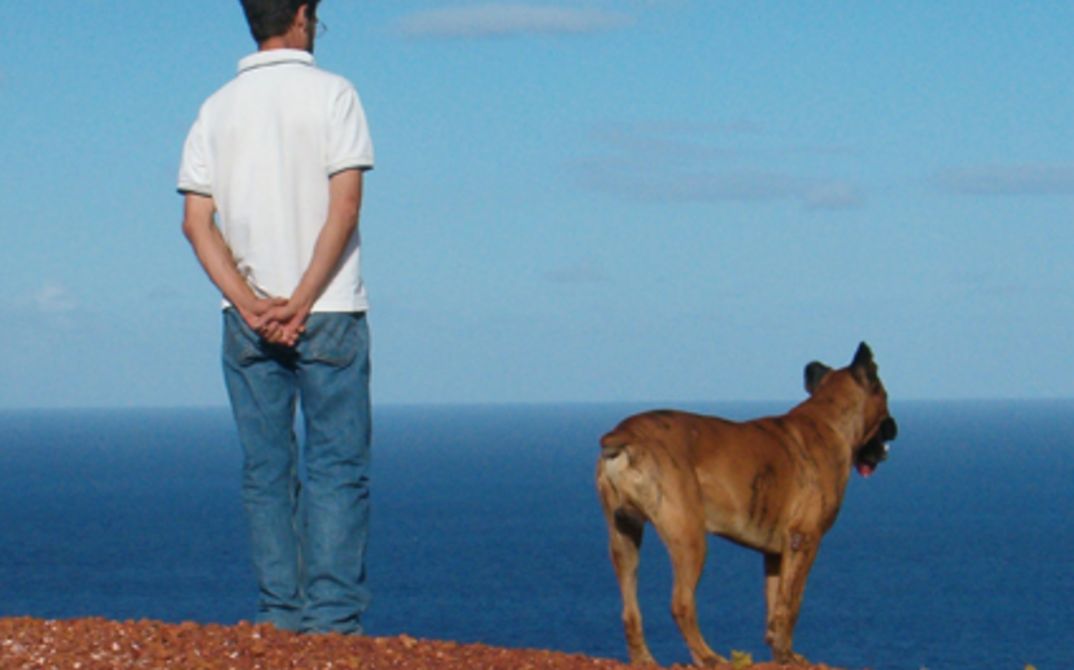At a time and in a world where hard-won realities and values seem to be dissolving before our very eyes, and feelings of insecurity are omnipresent, questions such as “What now?” “What is to be done and where are we right now?” have gained increasing urgency. How does cinema react to the crises of the present? How does it deal with turning points of both a personal and political nature?
Entitled “What Now?” in reference to Joaquim Pinto’s moving essay E AGORA? LEMBRA-ME (What Now? Remind Me), the autobiographical account of his battle with a viral disease, this program of five contemporary Portuguese films from 2013-2019 examines different artistic explorations of lasting upheaval in the aftermath of colonialism, the fascist Salazar dictatorship and EU austerity policies in Portugal. Drawing on a wide range of forms and aesthetics, the films reveal the fault lines of the present while always keeping an eye on the historical context. The focus may lie on Portugal, but it also refers to the current situation all of us are living in. (July 1-5)
E AGORA? LEMBRA-ME (What Now? Remind Me, Joaquim Pinto, Portugal 2013, 1.7., with an introduction by Birgit Kohler) Infected with HIV since the 90s and suffering from Hepatitis C, filmmaker Joaquim Pinto decides in 2011 to embark on a one-year treatment program that triggers serious physical and mental side effects. He spends this difficult time, an immense biographical turning point, with his husband Nuno and their dogs in the countryside, where they start a reforestation project. The act of recording his pain and state of health is juxtaposed with the beauty of nature, which is itself under threat, however. The diary film encompasses a wide range of different reflections: on the Carnation Revolution, the essence of epidemics, the dictates of European austerity, caves, Darwinism, Lana Turner and renaissance illustrations. Biographical recollections also flow into the film: Pinto’s time spent studying in East Germany, his work as a sound engineer for Raúl Ruiz and João César Monteiro, and his various contemporaries no longer with us, including Derek Jarman and Manfred Salzgeber. Last, but not least, it’s also a deeply moving film about a great love.
VERÃO DANADO (Damned Summer, Pedro Cabeleira, Portugal 2017, 2.7.) One decisive event in many biographies is the end of youth, the time after completing school and training. What will come next? The young people in Pedro Cabeleira’s debut film let life carry them along without having any sort of goal, through lazy afternoons and euphoric nights in Lisbon. Chico comes to the city from rural Portugal, has no job and no plans. He blows off a job interview to smoke a joint. Like his entire clique, his everyday life consists of chilling, drugs, and parties, a life between boredom and ecstasy. He is part of a generation without perspectives and expectations which seeks to delay growing up. The lack of plot points and traditional narrative culmination is contrasted with a special acoustic dynamic, with lengthy dance scenes which create an immersive effect and experimental sound design which blends techno beats and classical music.
VITALINA VARELA (Pedro Costa, Portugal 2019, 3.7.) Vitalina Varela arrives a few days late – her husband, who left her and the former colony of Cabo Verde decades previously to work in Portugal, has died without her getting the chance to see him again. Although she receives no welcome on her arrival in Lisbon, she stays and collects the fragments of his existence in a foreign country in his meagre dwelling in a district of Cape Verdean immigrants. She would like answers to her questions and, full of grief and pain, reconstructs his life. Yet what the priest tells her about his life offers scant comfort. Nearly wordless and with magical, beautiful images of great darkness, from which Vitalina’s elaborately lit face emerges in the style of old paintings, this spectral film tells the story of the real life of its protagonist, whose shoulders still bear the legacy of the colonial era to this day.
COLO (Teresa Villaverde, Portugal / France 2017, 4.7.) The way in which their high-rise apartment is furnished suggests better times, even if the consequences of the Portuguese economic crisis have caught up with the three-person middle-class family who lives there in the meantime. The father has lost his job and tries to alleviate his feelings of humiliation with a desperate kidnapping attempt. The mother works double shifts and is at the end of her strength. Their teenage daughter Marta is in love and takes care of her pet bird and an insecure friend. She reacts to the upheaval in their everyday lives with great worry. When there is no longer even money left to pay the electricity bill, something has to happen. With calm and concentration, COLO tells the story of the creeping breakdown of a family, accentuated only sparsely with quiet, elegiac music. After the crisis, daughter, mother and father will no longer be the same.
LUZ OBSCURA (Obscure Light, Susana de Sousa Dias, Portugal 2017, 5.7.) The 48-year dictatorship headed by António de OliveiraSalazar forms a prominent date in the history of Portugal. During this era (1926-1974), thousands of his opponents were arrested, tortured, and murdered. In LUZ OBSCURA, Susana de Sousa Dias examines the repercussions of this repression on the children and families of those political prisoners via photographs from the secret police’s records, which she combines with audio recordings of the now-adult children of a detained communist. As the family has no photo albums, the alleged criminal photos come to function like a family album. The haltingly delivered recollections of prison visits, life with the grandparents and long silences show how state terror destroys families and inscribes itself into relationships and memories. (bik)
A event in collaboration with the Embassy of Portugal / Camões Berlim as part of the Portuguese presidency of the Council of the EU. With special thanks to Ana Patrícia Severino.

